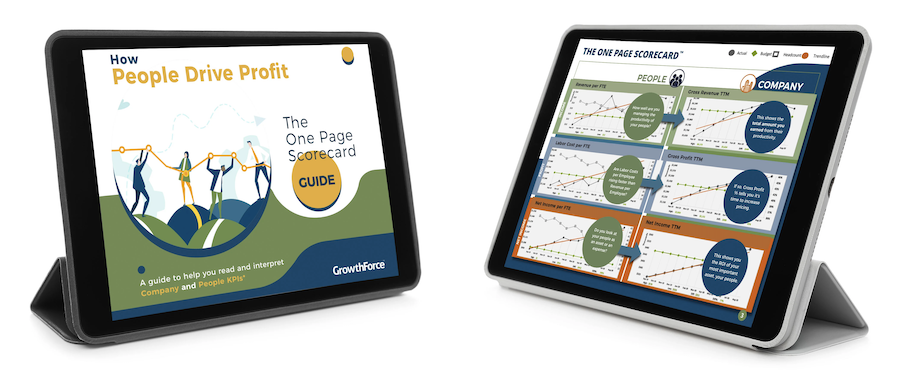5 min read
A recent survey of 280 US companies found 62% of business owners have identified three or more major inefficiencies in their manual business processes that could be resolved with automation.
|
Key Takeaways
|
As new forms of automation are transforming the work world, more and more companies are taking the leap from manual business processes to automated solutions.
Automation opens the doors to a more efficient, productive, and flexible work model. Automation can not only drive efficient decision making and improve allocation of resources, but also increase employee productivity.
Top 5 Advantages of Automating Manual Processes
1. Higher Efficiency and Productivity
Human errors are inevitable.
Implementing automated processes minimizes errors and redundancies, resulting in much more efficient work.
On average, managers spend at least eight hours a week on manual data tasks- that’s one full workday per week! Automation relieves mundane tasks, allowing employees to focus on high-value work.
The majority of manual tasks are not part of an employee's core job function. It takes time away from a manager’s abilities to focus on strategic initiatives that propel the organization forward.
McKinsey estimated that automation could increase productivity growth globally by 0.8 to 1.4 percent annually. Your employees are your most valued resource. Relieving them of tedious tasks and having them focused on developing their skill sets for their role will translate to more profits.
Read More: 4 Ways to Fight Employee Burnout With Automation
2. Reduced Time and Costs Saving
Automation translates to more labor hours available to you.
For processes that consist of many lower-level administrative tasks, automation can provide significant time and cost savings.
By reducing the time employees need to complete their work, as well as the number of employees needed on each task, automation translates to more hours focused on doing work that drives profits. Your employees will have to focus on high-level work that drives your business forward.
Another area where you can see cost savings is in your collection processes. By transitioning to an electronic business payment network, processing invoices can save significant time and labor costs.
For example, Bill.com reports by syncing their bill payment system with QuickBooks, businesses can cut bill payment time in half. As a result, vendors can rejoice by being paid two to three times faster electronically than with the manual method. The Wall Street Journal estimated that the average small business spends up to $20 to pay a bill. By using Bill.com to pay bills electronically, the cost to pay a bill can be slashed to around $1.50.
Read More: Cost Analysis: Outsourcing vs. In-House Accounting for Your Business
3. Improving Compliance
Automated processes empower compliance with regulations and audit trails.
Most businesses have large volumes of data on different interfaces- meaning employees may be using different processes. If an employee gets confused or any information goes unaccounted for, there is going to be a hiccup in your audit trail. Automation takes care of this.
Automating the manual process of creating Audit Log Reports keeps governance on track. Rather than multiple points of failure, one administrative personnel can be responsible for monitoring the entire report. This can even be scheduled on a recurring, monthly basis and ensures the report will always be accurate.
4. Financial Insight
Decisions can’t be made without information. Automation puts information at your fingertips so you aren’t making hasty decisions on your gut.
Automation has the biggest impact on financial intelligence because it allows you to get more information and get it faster than if you did things manually.
You can gain deep insight into your processes with analytics and reports, thereby aiding decision-making. By downloading or syncing data, you're able to capture things that are harder or factors that you may have missed with manual processes.
This is demonstrated primarily with job costing, decision-making, and cash flow. Job costing allows you to capture all costs of a job so you can price your items appropriately, ensuring profitability down the line. With proper real-time billing and coding, data is captured more accurately, resulting in a more accurate picture of the true costs of a job.
Here are our top ten picks of functions and tools that can enhance a company's financial systems through automation.
Read More: 3 Financial Reports Every CEO Should Know How To Read and Interpret
The One Page Scorecard will help you figure out where to focus your time.
Get the 6 company KPI scorecards & reports that all biz owners should have at their fingertips...
5. Increasing Your Ability To Scale
A scalable back office is key to business growth.
Manual processes make scaling difficult in response to an increase in demand. Automation makes this effortless.
The very nature of automating technology allows business owners to establish scalable, customizable back offices that will be equipped to provide everything the business needs to evolve and grow. Businesses are instantly able to implement changes that come from headquarters.
With an intelligent infrastructure already built into your business model and operations, you have the ability to scale your back office to meet your business's changing needs throughout every stage of growth.
Outsourcing As A Form Of Automation To Support Your Business
From an operational perspective, outsourcing is a form of automating processes.
The main difference? Rather than a software executing the process, it’s completed by humans- experts- in a given field.
As a business owner, the most valued resources you have are your employees’ skill set. They should be spending time developing the expertise they specialize is in, which in turns, drives your business forward.

.png?width=2000&height=440&name=Transitional%20GF%20Logo%20-%20Transparent%20(1).png)



